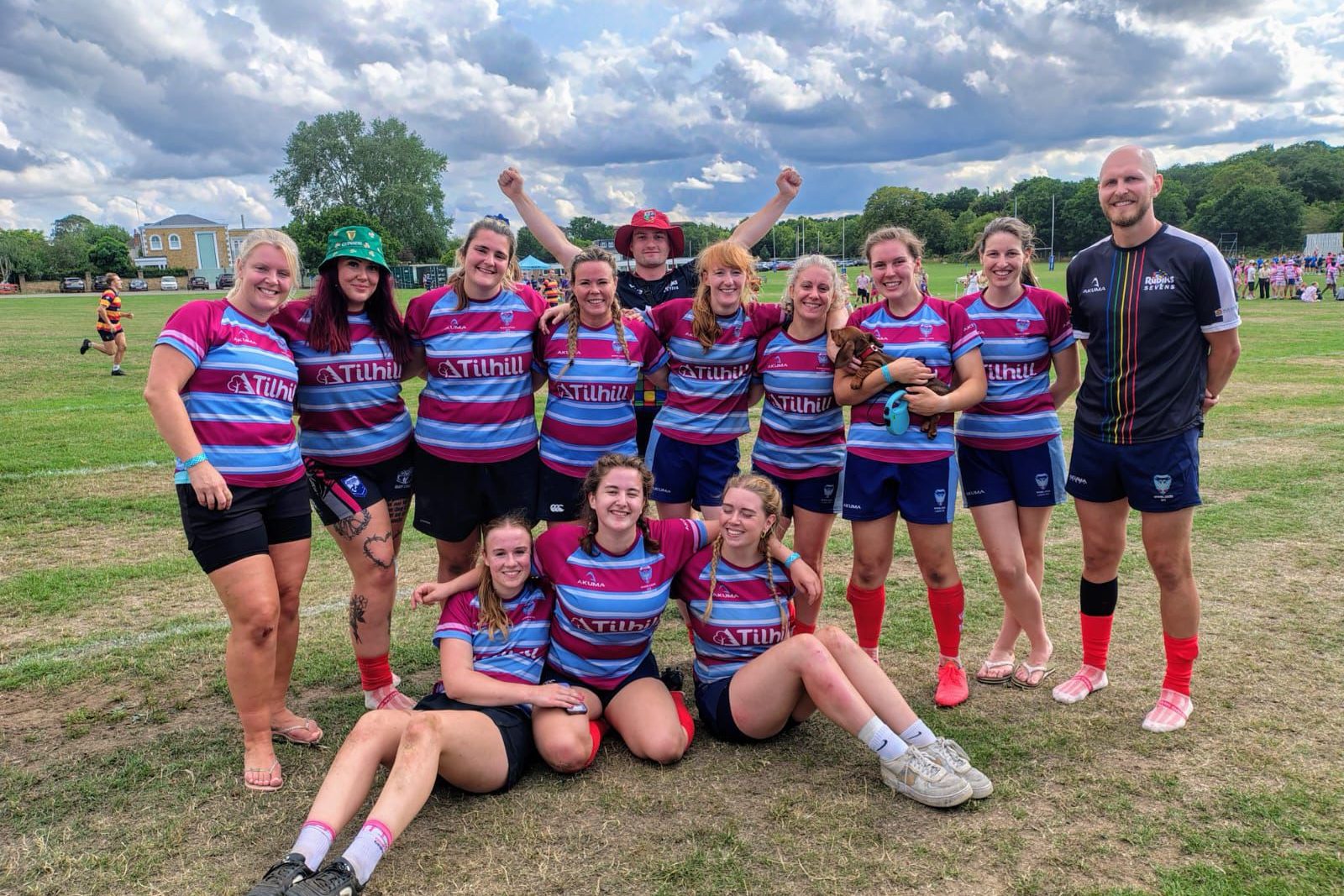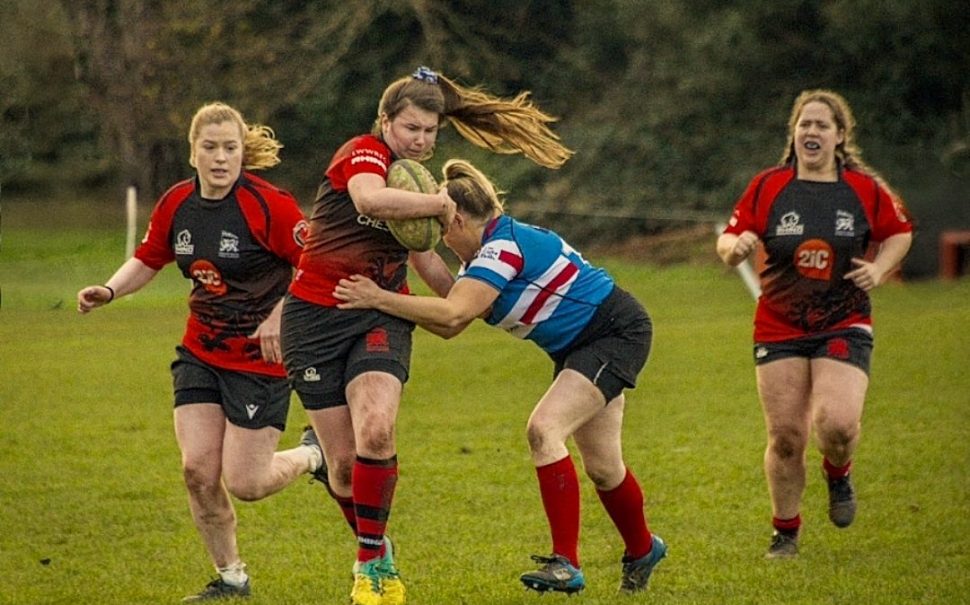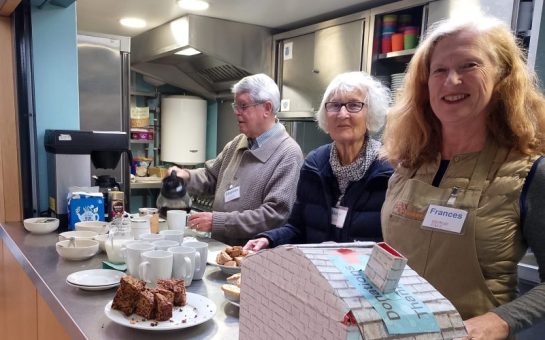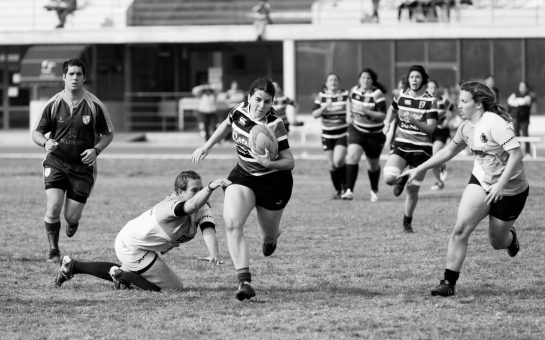The success of the Red Roses in the Women’s Rugby World Cup has undeniably shone a spotlight on the sport like never before.
Three times the number of ticket have been sold during the 2025 tournament compared to the last edition in New Zealand, and Saturday’s final at Twickenham between hosts England and Canada is expected to bring in the largest crowd for a one-off women’s match the game has ever seen.
Getting to this level of support hasn’t come easily as women’s rugby only gained official recognition from the IRB – now World Rugby – in 1998, yet the surge in interest at grassroots level is gaining momentum.
Juliette Shorey, Wimbledon RFC Women’s captain, said: “The visibility means that something that was just an idea is a lot more tangible.
She has noticed a mentality shift in the players now joining the club as well.
Shorey said: “Something has changed their mind in the last couple of years.
“[They] think ‘No, it’s not too late – I can go down’, and now absolutely love it.”
Body confidence is one of the leading reasons girls disengage from sports in the UK due to societal pressures.
This World Cup’s Strong Bodies, Strong Minds campaign aims to showcase the transformative nature of rugby to women of all ages by celebrating the diverse bodies women’s rugby exemplifies.

Shorey said: “It was such a beneficial thing to see that no matter what you looked like, where your strengths lied, if you were fast, if you were strong, whatever you were good at, there was somewhere on a rugby pitch that you’d be really useful.
“Seeing elite sports people who [have] a broad range of body sizes and a broad range of personalities, which comes through in a lot of the way that the Red Roses promote.
“That breaks down those mental barriers to joining.
“A woman who’s just about to go off to uni, and players who are 40… you’re all there on the same pitch, and you just don’t think about that difference, because you’re just unified by playing rugby.
The For The Girls campaign challenges the perception of rugby being just for boys, too.
The legacy of the Red Roses success should not just be where they place, but that girls too are able to turn dreams of playing into reality.
London Welsh’s director of community rugby, Karina Lo Dico, highlighted the efforts of the Richmond-based club and the RFU to encourage girls of all ages and abilities into the sport.
She said: “The RFU have come up with this T1 rugby type form, which is mixed age, mixed gender, no tackling, sevens-type rugby.
“We need to be a bit broader-minded that there’s not just one way of getting from minis rugby to women’s rugby.”
The Exiles’ women’s section are celebrating their 40th anniversary this year, making them one of the longest-established women’s rugby teams in London.
The women have long received strong support from the London Welsh men’s team, but one of the biggest things Lo Dico has noticed is the surge in interest from men as the World Cup approached the final stages.
She said: “I’ve had the chairman arrange all our tickets, and once we’ve given them all the way he’s gone ‘Oh, oh, I actually wanted to go’.
“That kind of visibility, that is brilliant for them as well, because they can see why we play, what standards we play, and how good it could be.”
Changing outdated perceptions about women’s rugby remains vital.
Teddington Women’s Rugby Club chair, Clare Chamberlain, said: “When I tell people I play rugby, they say, ‘Oh, do you tackle? Is it the same? Is it the same rules as the men?’
“I want someone on the street not to say, ‘Would you play the same rules as the men?'”
Chamerlain joined her local team 12 years ago, in a time when opportunities for women in the sport were scarce.
She said: “If 18-year-old me, going into the women’s section, had a choice of five or six clubs I could go to, that would have been fab – but now it actually does.”
The World Cup was initially self-organised as a quiet act of defiance against the IRB’s unwillingness to accept women’s rugby on equal footing with men’s game.
Chamerlain said: “They’ve just got to be immensely proud of what they’re doing, the fight isn’t over.
“Be proud of the fact that you have gotten to this point … without people backing your corner.
“They faced adversity, and they’ve gotten through it.
“I’ve sat in a queue to get women’s rugby tickets – that’s mental.”
Feature image: Karina Lo Dico




